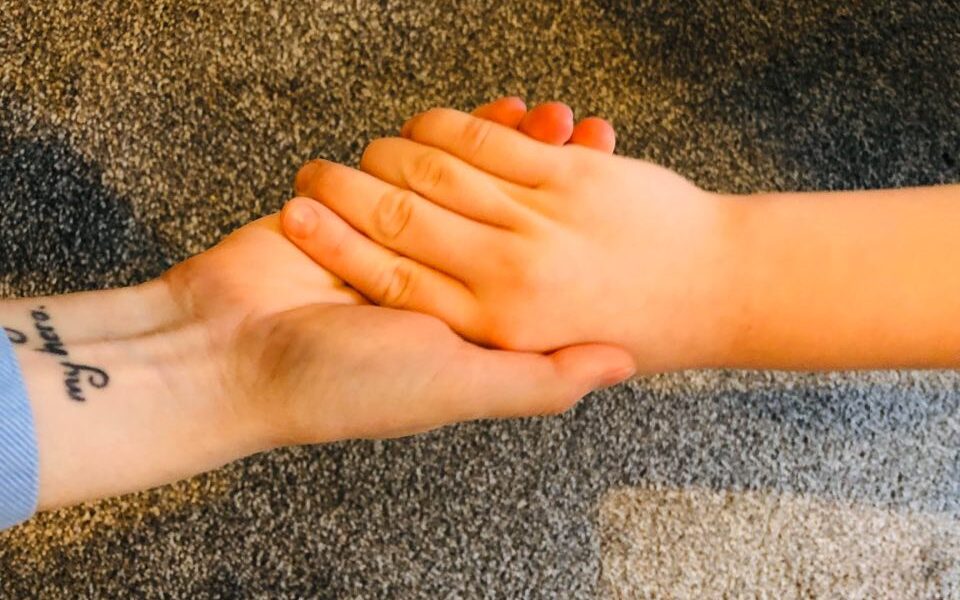Autism and sensory overload
Autistic people experience the world differently and a big part of that is our sensory experience. It is also one of the hardest parts of autism to understand and subsequently one of the most misunderstood.
Last week I needed to use an at home blood pressure monitor (a cuff goes around your wrist and fills with air to tighten around the wrist). I hate having my blood pressure taken at the Doctors, but I hoped that being at my partner’s home and feeling more at ease would take off the sensory aspect. However, three failed attempts later when it did finally secure fully and tighten as it should I was struggling to cope with the feeling of it.
As the cuff was taken off my wrist every part of me felt wrong. My body had gone beyond what it could process. My mind and body were rejecting all sensory input and screaming at me that everything was off. I could feel the tears building in me as I sat trying to breathe through it. I knew I was going to tip over the edge and wanted to get away from people in the kitchen. I headed upstairs and let sensory overload wash over me.
Sensory overload is overwhelming and scary. Imagine being a tiny mouse while a huge lion backs you into a corner and roars. Imagine being stuck in a room while someone scratches nails down a chalkboard. The biggest emotions I have while I am experiencing sensory overload is fear and an overall feeling that something is wrong. Everything is too much and beats down on me. During it I want nothing more than to first escape, and secondly curl up and hide somewhere quiet and dark. Somewhere safe. I crave sensory silence to allow my brain to reset.
Had I of stayed I would have been like an exposed nerve that could easily be pushed into a meltdown. Being on the edge of sensory overload means being with no defences to any sensory input. Going somewhere safe takes away the chances of something else hitting me while feeling so vulnerable and exposed. In order to regain control of my mind I need to escape from the trigger and into a safe place.
There is nothing I can do to stop me from experiencing sensory overload. Yes, I can try to reduce the frequency and intensity of them, but they will happen. I needed that blood pressure reading and was aware it may be too much after.
There is normally a clear switching moment where the sensory overload has washed over and I feel back to normal. It feels like my brain has ran its course and is saying ‘okay good to go again’. In this moment it can be very hard as an autistic adult not to look back at the Rosie wanting to curl up and hide and feel embarrassed. While it is important to help us escape and help us calm down in the moment, it is equally as important to help us with our mental health after. For me, this means just forgetting it and moving on.
I went from hiding in the bedroom after the reading was taken to walking back into the kitchen completely fine. After supporting me through the intensity of the overload, my partners response in the kitchen was ‘welcome back’ and smiling. Then it was done. I shook off the feelings of embarrassment and knew she wouldn’t be thinking about it either. I had tipped into overload, recovered and it was done.
Managing our mental health is an important part of autistic life and crucial to our wellbeing. Shame, guilt and embarrassment can eat us up as we fight overloads and meltdowns. Moving on and distracting from what happened is as important as the care in the moment. Though it is worth noting that sensory overload is the equivalent of a mental marathon as well as physically draining – I crave sleep and sugar after. It’s worth being conscious of better self-care in the hours after the overload has happened. I generally eat chocolate (or anything sweet, even a cup of tea) and try to get a decent night sleep that night.
This post is very specific to my experience of overload and how I recover. If you know an autistic person that is capable of communicating their needs, then please have this conversation long before they reach overload. While I crave a quiet dark room, they may crave ear defenders or a weighted blanket. While I like to have my partner there with me, they may prefer to be left alone. It’s important to check in with their needs and have a plan in place as we never know when sensory overload is going to happen.
Be kind, be patient.
Found this blog helpful? You can support my writing and say thanks by buying me a coffee 🙂
